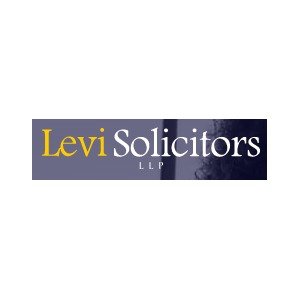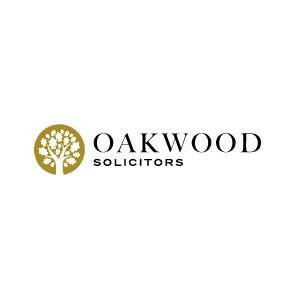Best Corporate & Commercial Lawyers in Leeds
Share your needs with us, get contacted by law firms.
Free. Takes 2 min.
List of the best lawyers in Leeds, United Kingdom
About Corporate & Commercial Law in Leeds, United Kingdom
Leeds is one of the United Kingdom's leading business centres, home to numerous national and international corporations, tech startups, and financial institutions. Corporate and commercial law in Leeds covers the regulations, statutes, and common-law principles that govern business activities, commercial transactions, and company operations. This area of law focuses on helping businesses navigate issues such as formation, mergers, acquisitions, contracts, employment law compliance, intellectual property, dispute resolution, and regulatory requirements. Whether you are operating a small family-run business or a large multinational, understanding corporate and commercial law is essential for protecting your interests and achieving your goals in Leeds's dynamic business environment.
Why You May Need a Lawyer
There are many reasons individuals and businesses may seek legal advice within the field of corporate and commercial law. Some common scenarios include:
-
Formation and structuring of a new business, including registering a company, drafting articles of association, and partnership agreements.
-
Negotiating and drafting contracts with customers, suppliers, service providers, or employees.
-
Dealing with mergers, acquisitions, or selling a business.
-
Navigating employment law matters such as contracts, redundancies, disputes, or compliance for your staff.
-
Protecting intellectual property including trade marks, copyrights, and patents.
-
Handling shareholder disputes or company director responsibilities.
-
Managing regulatory compliance including data protection, anti-money laundering, consumer rights and environmental regulations.
-
Addressing commercial disputes or litigation.
Consulting with a corporate and commercial lawyer ensures that you are complying with local and national laws, reducing risk, and making informed decisions for your business.
Local Laws Overview
In Leeds, corporate and commercial law is primarily governed by national UK legislation, but local economic development priorities, regulations, and business culture can influence the specific ways these laws are applied. Key aspects include:
-
Companies Act 2006 - Governs company formation, directors' duties, shareholder rights, and reporting requirements.
-
Commercial contracts - English common law applies to contract formation, terms, and breaches, providing a stable and predictable legal framework.
-
Employment law - Sets out statutory employment rights, redundancy procedures, and discrimination protections.
-
Data protection - The UK General Data Protection Regulation (UK GDPR) and the Data Protection Act 2018 apply to handling personal data.
-
Intellectual Property law - Protects creations such as inventions, brand names, and copyrighted materials.
-
Local regulations - Leeds City Council bylaws may affect areas like planning, business rates, and licensing for certain trades.
-
Regulatory compliance - Various requirements apply to anti-money laundering, health and safety, and environmental matters.
Leeds's vibrant business community also benefits from a range of business support initiatives and partnerships that influence how national regulations are implemented locally.
Frequently Asked Questions
What type of legal entity should I use to set up my business in Leeds?
The most common types are private limited companies (Ltd), public limited companies (PLC), partnerships, and sole traders. The choice depends on factors such as business size, risk, liability, and tax considerations. A lawyer can advise on the best structure for your circumstances.
What are the basic requirements for forming a limited company?
You must choose a company name, provide a registered office address, appoint directors, determine shareholders, and file registration documentation (including the Memorandum and Articles of Association) with Companies House.
Do I need written contracts with suppliers and customers?
While verbal contracts can be legally binding, written agreements are strongly recommended. Written contracts clarify expectations, limit misunderstandings, and provide clear evidence if a dispute arises.
What are the director's duties under UK law?
Company directors must act in the company's best interests, adhere to the Companies Act 2006, avoid conflicts of interest, and exercise care, skill, and diligence. Breaching these duties can result in penalties.
How do I protect my business's intellectual property?
You can protect intellectual property through trademarks, patents, copyrights, and registered designs. Taking legal advice ensures your intellectual assets are properly identified and secured.
What should I do if I have a dispute with a business partner or shareholder?
Seek legal advice promptly. Many disputes can be resolved through negotiation or mediation before resorting to court proceedings. Having a shareholders' agreement in place can help prevent or resolve disputes.
How does Brexit impact businesses in Leeds?
Brexit has affected trade, data flows, immigration, and regulatory frameworks. Businesses need to review cross-border contracts, supply chain arrangements, and compliance with new regulations.
What employment laws must my business comply with?
Businesses must comply with minimum wage laws, anti-discrimination statutes, health and safety regulations, redundancy procedures, and employee rights as set out in UK employment legislation.
Are there specific commercial regulations set by Leeds City Council?
Leeds City Council sets requirements for areas such as business rates, trading licenses, planning permissions, food hygiene, and environmental health. Your business may need to comply with these local rules.
Where can I get help if my business faces liquidation or insolvency?
It is important to take early advice from qualified solicitors or insolvency practitioners. They can explain your legal duties, available options, and help to minimise liabilities during insolvency.
Additional Resources
For those seeking further information or assistance in corporate and commercial matters in Leeds, consider these helpful resources:
-
Companies House - the official UK government register of companies for formation and recordkeeping.
-
The Law Society - provides guidance and a searchable directory of regulated solicitors.
-
Leeds City Council - offers information on local business licensing, planning, rates, and grants.
-
Intellectual Property Office - for registering and protecting intellectual property in the UK.
-
UK Government Business Support - assistance with funding, legal requirements, and business growth.
-
Insolvency Service - official guidance on company insolvency, liquidation, and director responsibilities.
-
Local business networks and chambers of commerce in Leeds, which provide legal and practical support.
Next Steps
If you are facing a corporate or commercial legal issue in Leeds, or simply wish to ensure your business is legally compliant, it is advisable to:
-
Assess your situation and identify your key areas of legal concern, such as contracts, employment, or regulatory matters.
-
Gather relevant documents or information, including any contracts, business registration details, or correspondence.
-
Research local solicitors or law firms specialising in corporate and commercial law, checking their experience and client reviews.
-
Arrange an initial consultation to discuss your needs and receive tailored legal advice.
-
Consider joining local business support groups or networks which can offer peer advice and access to recommended legal experts.
-
Stay informed about changes in relevant laws, regulations, or council requirements that may affect your business.
Taking proactive legal advice from a qualified corporate and commercial solicitor in Leeds can help you protect your interests, avoid disputes, and support your business’s growth and success.
Lawzana helps you find the best lawyers and law firms in Leeds through a curated and pre-screened list of qualified legal professionals. Our platform offers rankings and detailed profiles of attorneys and law firms, allowing you to compare based on practice areas, including Corporate & Commercial, experience, and client feedback.
Each profile includes a description of the firm's areas of practice, client reviews, team members and partners, year of establishment, spoken languages, office locations, contact information, social media presence, and any published articles or resources. Most firms on our platform speak English and are experienced in both local and international legal matters.
Get a quote from top-rated law firms in Leeds, United Kingdom — quickly, securely, and without unnecessary hassle.
Disclaimer:
The information provided on this page is for general informational purposes only and does not constitute legal advice. While we strive to ensure the accuracy and relevance of the content, legal information may change over time, and interpretations of the law can vary. You should always consult with a qualified legal professional for advice specific to your situation.
We disclaim all liability for actions taken or not taken based on the content of this page. If you believe any information is incorrect or outdated, please contact us, and we will review and update it where appropriate.
Browse corporate & commercial law firms by service in Leeds, United Kingdom
Leeds, United Kingdom Attorneys in related practice areas.











